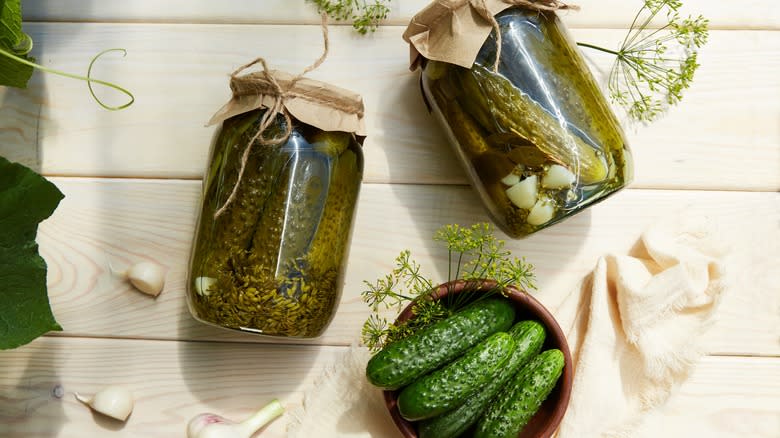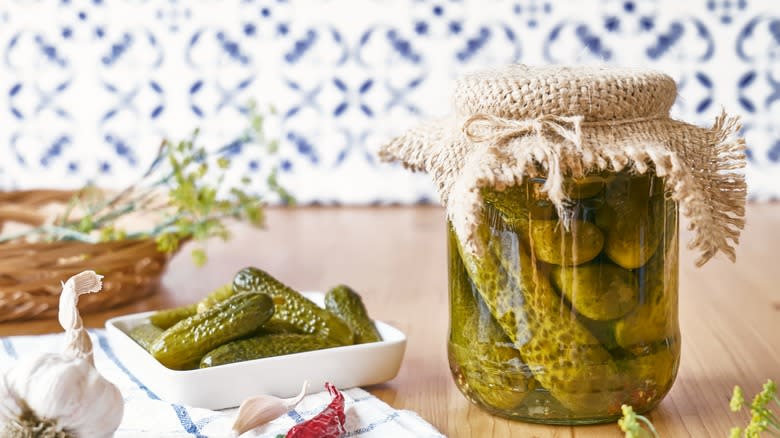How To Check If Store-Bought Pickles Are Actually Fermented

If you've fallen into the recent gut health trend, you may spend time perusing the grocery aisles for fermented foods. There are a handful of fermented items that can make their way into your grocery cart, like kombucha, kimchi, sauerkraut, and pickles ... but are pickles actually fermented? If you can't tell from the look alone, there's an easy way to see whether or not your store-bought pickles are fermented.
There are two different ways of making pickles: pickling and fermentation; only one of which actually lives up to the name. Pickling involves steeping fruits or vegetables (such as a cucumber) in a vinegar-based brine. Within three days to a week, the ingredients will be pickled, marked by their signature sour taste. For store-bought pickled cucumbers, vinegar will always be listed as an ingredient on the label, with salt occasionally being present.
Meanwhile, fermentation involves covering fruits or vegetables in a salt-based brine. In about a week, the tangy flavors will start to develop. For store-bought pickles that are fermented, salt should be the main ingredient, but vinegar is never present. While fermentation does result in a similar sour taste to pickling, the flavor comes about via lacto-fermentation. Bacteria from the salty brine consume the vegetable sugars, creating lactic acid, which then ferments the cucumbers.
Read more: 25 Most Popular Snacks In America Ranked Worst To Best
Should You Eat Pickled Or Fermented Cucumbers?

If your gut health is important to you, then you'll probably make the choice to eat fermented pickles. Fermented foods have a range of potential health benefits, from improving your overall gut health to decreasing your chances of developing high blood pressure. Fermented foods supply your gut with a steady stream of healthy bacteria, balancing the amount of good and bad bacteria in your body.
However, too much fermented food can have its drawbacks. If you drink kombucha daily, add miso to your dressings and meat, or eat probiotic-rich yogurt for breakfast, then you should opt for pickled cucumbers rather than fermented ones. An excessive amount of fermented foods can result in side effects like bloating and gas, as well as more serious side effects such as migraines and histamine intolerances.
Taste-wise, pickled cucumbers are sharper and more piquant than fermented pickles. Thanks to the acetic acid, or vinegar, used in those pickles, they come across as much stronger than fermented pickles, which have a lighter taste from the lactic acid. Although pickles are often enjoyed straight from the jar, if you're going to cook with them, opt for the pickled ones. When cooking with fermented foods, you should be careful about the amount of heat they encounter. Otherwise, all of the good bacteria that they contain will die off.
Read the original article on Tasting Table.


